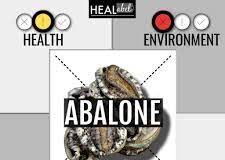Newly turn mothers have many challenges to face in the beginning, just after they have given birth to the baby, including taking care of them, sleepless nights, consuming breast milk supplement to deal with low milk supply, and the mother can also stress out when their infant is suffering from colic pain which is fairly common and affects almost every 10th newborn regardless of their sex, culture, race and whether they are on breast or bottle fed.
What is colic?
In babies, colic is referred to uncontrollable crying for several hours per day or three days a week with no justified reason seen. It can appear anytime but usually it starts in the evening or at night. This pain and crying episodes have been noticed when the baby is just two weeks old and the good thing is that it will go off on its own in about 3 to 4 months of age. However, in some cases it is noticed for a bit longer time period but it’s ok! It’s only a temporary health condition with no long term consequences observed. These colicky babies are like every other normal baby who is gaining weight and growing well.
Breast feeding mother, her diet and colicky baby
The exact cause of colic pain is unknown and so the relationship between mother’s diet and colic pain also needs more research and evidence needs to be collected. Still it is assumed that few food groups may be irritant to the infant as the mother’s diet is the fuel to breastmilk. Breastmilk supplements have some herbs which are effective in increasing milk supply and many mothers rely on them. It might have some herbs in them which can cause gas and colic pain in babies. Few infants are lactose intolerant and so nursing mothers have to eliminate dairy products from their daily meals. Some foods like melons, cabbage, peas, beans, pulses, cow’s milk or even caffeine could contribute to intestinal gas or digestive issues in the newborn.
It is asked to record what you eat, mainly when these crying episodes occur, to evaluate which food is causing problems. You can even ask your health practitioner before eliminating any food from your diet as they know better than us. All that doesn’t mean that you should stop nursing your baby as this milk is the best source of nutrition for your baby. Researchers also suggest including probiotics in mothers’ daily supplements which indirectly aids colic relief in breastfed babies. You may also ask your lactation consultant how supplements like breastfeeding protein shake lactation powder can be good for you and your baby.
Remedies to Calm the Colicky Baby
Being a mother is a hectic job with a lot of hard work required. Babies get fussy, irregular sleep timings are really patience testing for newly turned mothers. Dealing with a colicky baby makes parents feel helpless, confused and stressed about how to stop this inconsolable crying and how to soothe their colicky baby. Here are a few suggestions which you can follow to help yourself:
A – Rock, walk and hold:
Babies when cranky due to pain, don’t lay down on their backs and cry a lot. You then pick them up, holding against your chest, walking, patting and rubbing their backs simultaneously trying to calm them. This motion and walking helps a lot and babies mostly stop crying. You can even put them in a stroller or baby carrier to move around, giving them rhythmic movements and getting them distracted. It is also a very good option to take them on a ride in the car till they become peaceful or lull to sleep. Motions help calm babies and fall asleep quickly than any other way.
B – Burping techniques
A pretty worth trying technique to ensure that the baby gets rid of some of the air they have swallowed during feeding. It could occur even when, breastfed baby had a forceful let down or had an increase milk supply because of which milk was abundantly swallowed by the lactating infant causing extra air and indigestion. Uphold the baby and wait till the baby takes a couple of burps before you lie them down. This method can prevent colic pain.
C – Don’t overfeed your baby
You need to stick to the baby’s regular feeding schedule regarding timing and amount of milk consumed in ounces if bottle fed. You should wait about two to three hours in between feedings. Offering milk over and over again could cause bloating, indigestion resulting in colic pain. Baby inner system needs to digest and rest before it starts repeating the process of digestion again, so be sympathetic to your baby and every time he/she is crying doesn’t mean they are hungry.
D – Switch formulas
For HiPP HA Formula fed babies, check a pediatrician who can advise you about less allergic, Hydrolyzed formulas, Nutramigen or Alimentum. They are also known as hypoallergenic. Some studies recommend that these changes in milk compositions could lead to decrease in these crying episodes and symptoms both. For this you need to give some days and check whether this change has improved the situation or not.
E – Pacifiers
Consider the use of a pacifier. You can introduce it, if your baby is one month old and is breastfeeding well. Babies naturally have impactful sucking reflexes. Sucking a pacifier may aid in calming and making them busy for some time. Make sure your pacifiers are clean, sterilized and of good quality material.
F – Gentle massage
When the baby is crying due to colic trouble, they are really unrest and are really distressed. Parents hold them, trying to relax but many times left in vain. You could try to change their position by laying them on their tummy, or place the baby across your lap, tummy down, rubbing their backs with any massaging cream or baby oils. You can even massage the stomach with slow movements, which will help the baby pass out the gas easily and relieve them immediately.
Summing up:
Colic is painful and unpleasant but not dangerous and so it will vanish on its own as the baby grows old. Always remember every pain or crying is not due to colic pain or hungriness. If you see other symptoms along with it then do visit a doctor and let him know about the situation too. Parents must also take care of themselves and ask for help if they get frustrated while taking care of such a fussy baby. It is a hard time so all the prayers and best wishes are with you.















